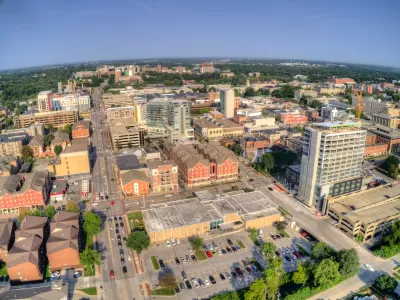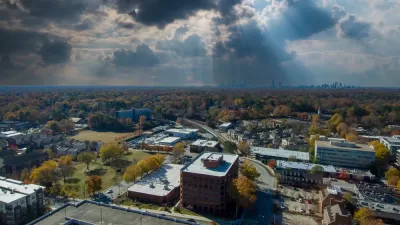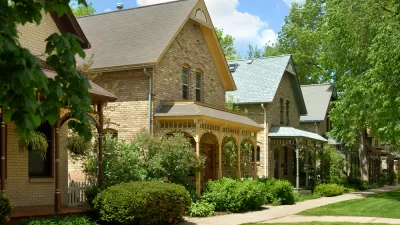Iowa City is planning ahead to ensure that housing supply keeps up with housing demand.

The Iowa City planners are working on a set of proposed zoning changes to increase housing supply and diversity, presenting five potential zoning code amendments to a recent working session by the City Council.
Izabela Zaluska reports for the Gazette that the five amendments would accomplish the following changes:
- Increasing flexibility for a range of housing types, including where duplexes, townhomes and assisted group living are allowed
- Modifying design standards
- Providing additional flexibility to enhance the supply of housing, including increasing the bedroom limit for multifamily housing outside of the University of Iowa impact area
- Creating regulatory incentives for affordable housing, including density bonuses
- Addressing fair housing, including creating a process to request reasonable accommodations for people with disabilities
Those five amendments include a total of 13 changes intended to improve housing affordability in the city. “One of the changes would allow duplexes and two attached units more widely in lower density single-family zones, instead of only on corner lots. Staff estimates this would allow up to 2,900 lots to accommodate duplex uses through gradual conversion,” writes Zaluska.
Zaluska also reports that the proposed amendments are based on the vision laid out in the city’s 2016 affordable housing action plan: “The plan included 15 action steps, including changes to zoning regulations. The changes to zoning regulations is the only action step that has not been completed, senior planner Anne Russett said.”
More details on the reasoning behind the proposed amendments are included in the source article below.
FULL STORY: Iowa City considering zoning code changes to encourage affordable housing

Planetizen Federal Action Tracker
A weekly monitor of how Trump’s orders and actions are impacting planners and planning in America.

Chicago’s Ghost Rails
Just beneath the surface of the modern city lie the remnants of its expansive early 20th-century streetcar system.

San Antonio and Austin are Fusing Into one Massive Megaregion
The region spanning the two central Texas cities is growing fast, posing challenges for local infrastructure and water supplies.

Since Zion's Shuttles Went Electric “The Smog is Gone”
Visitors to Zion National Park can enjoy the canyon via the nation’s first fully electric park shuttle system.

Trump Distributing DOT Safety Funds at 1/10 Rate of Biden
Funds for Safe Streets and other transportation safety and equity programs are being held up by administrative reviews and conflicts with the Trump administration’s priorities.

German Cities Subsidize Taxis for Women Amid Wave of Violence
Free or low-cost taxi rides can help women navigate cities more safely, but critics say the programs don't address the root causes of violence against women.
Urban Design for Planners 1: Software Tools
This six-course series explores essential urban design concepts using open source software and equips planners with the tools they need to participate fully in the urban design process.
Planning for Universal Design
Learn the tools for implementing Universal Design in planning regulations.
planning NEXT
Appalachian Highlands Housing Partners
Mpact (founded as Rail~Volution)
City of Camden Redevelopment Agency
City of Astoria
City of Portland
City of Laramie





























